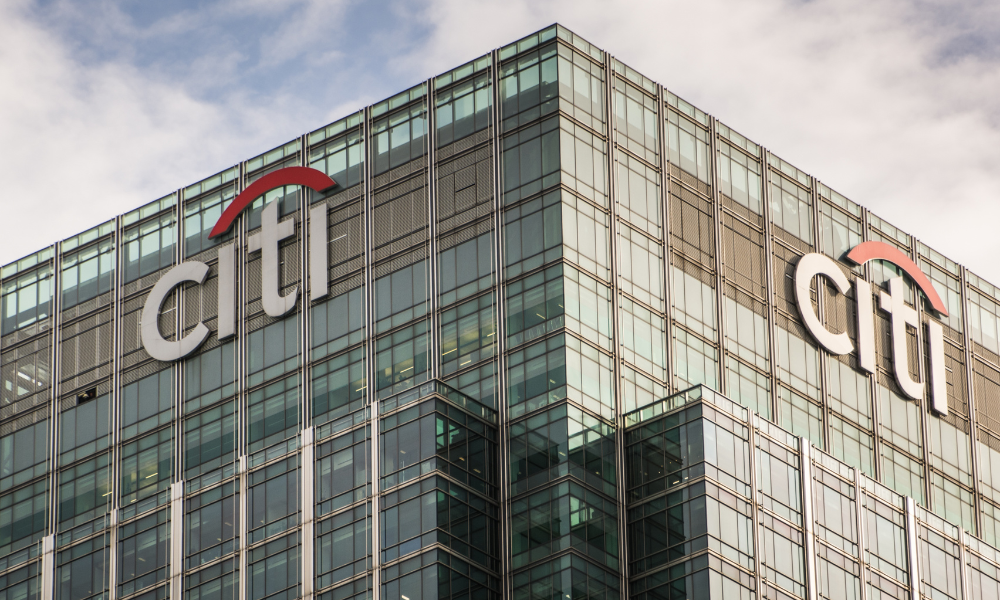As Citigroup drops diversity targets, Canadian companies reduce DEI budgets and rebrand inclusion efforts

Citigroup is eliminating workplace diversity representation goals and interview requirements for diverse candidates, citing changes in US federal policy under President Donald Trump.
The bank will no longer maintain “aspirational representation goals” except where legally required and is ending its policy that ensured diverse candidates and interview panels, according to a memo from CEO Jane Fraser seen by Bloomberg News and reported by Financial Post.
In addition, the company’s “Diversity, Equity and Inclusion and Talent Management” team will be renamed “Talent Management and Engagement.”
Fraser stated that the decision comes in response to recent US federal government policies that impact global hiring strategies for federal contractors, a category that includes Citigroup due to its role in facilitating US government payments.
The move follows similar actions by major US corporations. Benefits and Pension Monitor reported that companies like Amazon, Meta, Target, Walmart, and Goldman Sachs have scaled back their diversity efforts amid increasing political opposition.
Financial Post also noted that consulting firms Accenture, Booz Allen Hamilton, and Deloitte have abandoned diversity goals following an executive order by Trump banning such efforts among federal contractors.
The rollback of diversity initiatives has gained traction since the US Supreme Court struck down affirmative action in university admissions in June 2023.
The Globe and Mail highlighted that conservative activist Robby Starbuck has taken credit for pressuring several companies, including Deere & Co., Harley-Davidson, Molson Coors, and Walmart, into scaling back their DEI policies.
“We’ve now changed policy at companies worth over US$2tn,” Starbuck posted on X, claiming that corporate America is shifting away from what he calls “wokeness.”
MASSIVE news: Walmart is ending their woke policies. I can now exclusively tell you what’s changing and how it happened.
— Robby Starbuck (@robbystarbuck) November 25, 2024
Last week I told execs at @Walmart that I was doing a story on wokeness there. Instead we had productive conversations to find solutions.
Below are the… pic.twitter.com/BD02xJQ0X2
While Citigroup’s leadership had previously emphasized its commitment to workplace diversity, the shift signals a departure from earlier goals.
In 2022, Fraser announced targets to increase Black representation in assistant vice president to managing director roles to 11.5 percent across the US, Puerto Rico, and Canada by 2025, as well as raising the share of women in those roles globally to 43.5 percent, up from 40.6 percent at the end of 2021.
Less than a year ago, the bank stated in a filing that its “2025 aspirational representation goals are embedded in its business strategy.”
However, as per Financial Post, those commitments have now been rescinded.
The trend of scaling back diversity efforts is not limited to the US. CBC News reported that Canadian organizations are also quietly shifting away from EDI (equity, diversity, and inclusion) initiatives, though with less public backlash.
Michelle Grocholsky, CEO of Empowered EDI in Toronto, stated that many Canadian companies are reducing budgets for diversity work and downsizing EDI teams.
In some cases, EDI positions are being eliminated entirely, as seen at Alberta Investment Management Corporation (AIMCO), which removed its EDI lead in a broader set of job cuts.
Universities in Canada are also adjusting their approach. According to CBC News, the University of Alberta recently replaced its EDI framework with a new term: “Access, Community, and Belonging.”
President Bill Flanagan wrote in the Edmonton Journal that EDI had become a divisive concept, suggesting it conflicted with merit-based principles. The University of Lethbridge made a similar move, establishing an office of accessibility, belonging, and community.
These changes come as conservative movements in Canada challenge DEI policies. The Globe and Mail reported that Alberta’s United Conservative Party recently passed resolutions to eliminate DEI programs in the public service and cut funding to post-secondary institutions that maintain such policies.
Federal Conservative Leader Pierre Poilievre has also used the term “woke” as a pejorative while promising to dismantle Liberal government policies related to climate and equity.
Despite these developments, corporate Canada has not yet seen a full retreat from ESG (environmental, social, and governance) and diversity-related commitments.
The Globe and Mail cited its Board Games corporate ranking, which tracks governance practices in Canadian companies.
In 2024, 35 companies received top scores for diversity, up from 19 in 2023. Additionally, investor-driven efforts to assess corporate racial equity practices continue.
Major Canadian banks, including TD, RBC, and BMO, have agreed to conduct racial equity audits, though shareholder votes on these issues remain contentious.
While the terminology around diversity and ESG is shifting, corporate strategies may remain largely intact. The Globe and Mail reported that many companies are now replacing the term ESG with “sustainability” to avoid political backlash.
RBC Global Asset Management’s Melanie Adams noted that “it was almost unfortunate how far the pendulum swung” in the early 2020s, as the intense focus on ESG led to today’s counterreaction.
For now, businesses appear to be navigating a changing landscape by adjusting public messaging rather than outright abandoning diversity-related efforts.
However, as noted by Grocholsky in CBC News, many of these programs were implemented in “performative, superficial ways” to begin with, which may have contributed to their lack of resilience under political pressure.



